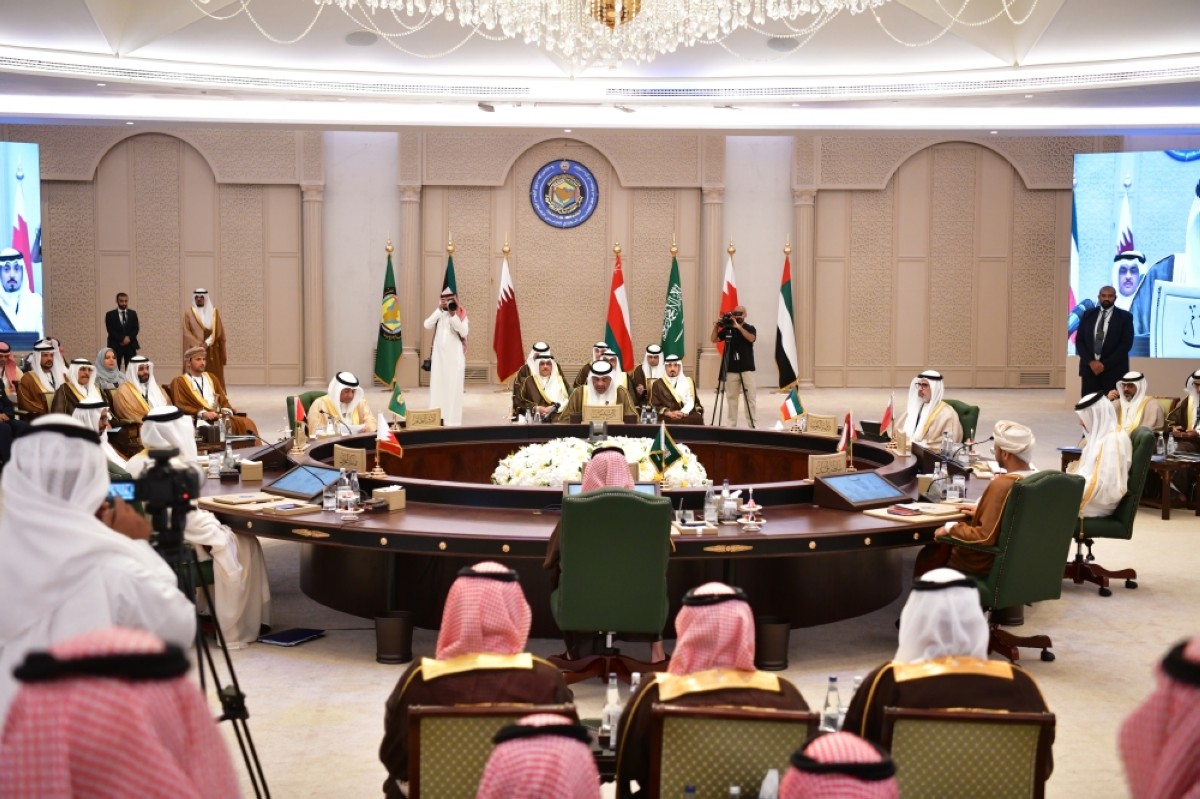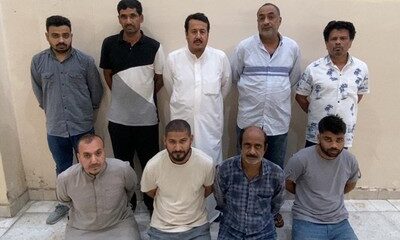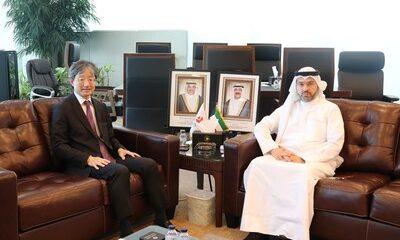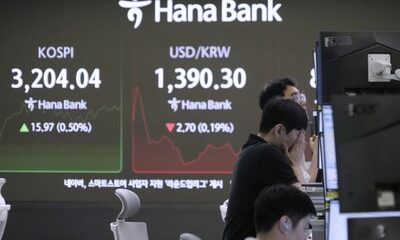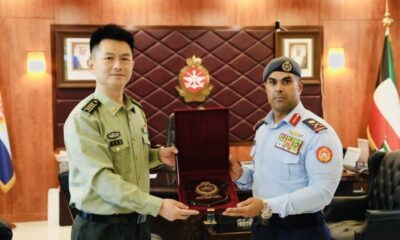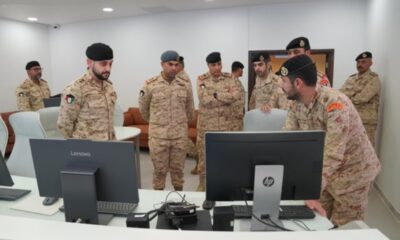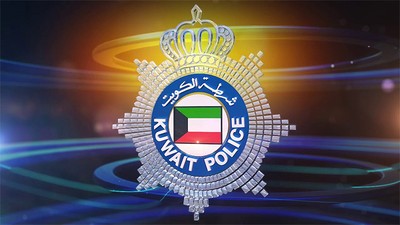KUWAIT: Foreign Minister Abdullah Al-Yahya affirmed Kuwait’s commitment to supporting the unity and sovereignty of the Syrian Arab Republic, stressing the importance of respecting Syria’s national interests amid ongoing regional developments and efforts to strengthen bilateral relations.
On the sidelines of 164th session of the GCC Ministerial Council, Minister Al-Yahya highlighted that recent meetings during Syria’s President Ahmed Al-Sharaa’s official visit to Kuwait reflected a shared desire to deepen ties between the two countries.
Regarding the reopening of Kuwait’s embassy in Damascus, he stated: “The process is moving in that direction, but it remains an internal matter, where we are in the process of appointing several ambassadors abroad, and this will include developments related to diplomatic representation in Syria. Announcements are expected soon.”
Meanwhile, the minister welcomed the announcement by former US President Donald Trump regarding the lifting of sanctions on Syria, expressing appreciation for the significant efforts made by Saudi Arabia and other countries in this regard.
Concerning the proposed unified Gulf visa, the minister clarified that the issue had not been raised again in recent meetings, describing it as a purely technical matter currently under expert-level discussion within GCC countries, noting: “The file remains under study and may be addressed in future meetings of the relevant committees.”
GCC ministers pose for a group photo ahead of their meeting.
On the upcoming meeting in New York concerning the Palestinian issue, scheduled for June 17–21, the minister expressed Kuwait’s keen interest in participating, saying: “Representatives from various countries, including possibly France, are expected to attend.”
He reaffirmed Kuwait’s unwavering position, calling for an end to Zionist occupation and urging the international community to fulfill its legal and moral responsibilities, emphasizing the need for immediate action to halt violations of international humanitarian law, ensure full protection for civilians, and facilitate the delivery of humanitarian aid.
The minister reiterated support for the Palestinian people’s legitimate rights, foremost among them the establishment of an independent state based on the June 4, 1967 borders with East Jerusalem as its capital.
On aid to Syria, the minister confirmed that Kuwait intends to assist the Kuwait Fund for Arab Economic Development, stating: “The plan is still being formulated, and efforts will proceed through multiple channels, including bilateral cooperation and multilateral partnerships.”
On the maritime border issue with Iraq, the minister stated that the Ministerial Council had expressed a clear stance on the need to respect Kuwait’s sovereignty and adhere to international agreements, calling on Baghdad to fully comply with UN Security Council resolutions, particularly Resolution 833, concerning the demarcation of the Kuwait-Iraq border.
He reiterated Kuwait’s call for Iraq to proceed with the demarcation of the maritime border beyond marker 162, by the UN Convention on the Law of the Sea (1982) and established principles of international law. He urged Iraq to respect the bilateral agreement on maritime navigation in Khor Abdullah, signed on April 29, 2012, and in force since December 2013, which has been formally deposited with the United Nations.
Regarding the Durra gas field, he reaffirmed the Gulf stance that the field lies within shared territorial waters between Kuwait and Saudi Arabia. He stressed that no third party has the right to dispute the two countries’ sovereign rights, underscoring that the shared ownership of natural resources in the divided zone between Kuwait and Saudi Arabia is based on international law.
The minister also emphasized the importance of continued UN oversight regarding the files of missing persons, prisoners, and stolen property, calling for the appointment of a senior coordinator to continue these efforts following the end of the UN Assistance Mission for Iraq’s mandate. He urged Iraq to achieve final progress in these matters. On the economic front, he reaffirmed that Kuwait is moving steadily toward realizing the Gulf common market, boosting investments, and facilitating the movement of citizens, goods, and services across GCC countries.
He also affirmed Kuwait’s support for Lebanon, particularly following the election of President Joseph Aoun, calling for the continuation of political and economic reforms to meet the aspirations of the Lebanese people. “We reject any foreign interference in Lebanon’s internal affairs and reiterate the call for the full implementation of UN Security Council Resolution 1701 and other relevant resolutions to restore lasting security, stability, and sovereignty in Lebanon,” he said.
The minister referred to positive developments in the ongoing rapprochement between Iran and the United States, facilitated by Oman’s efforts, adding: “We welcome any steps that contribute to de-escalation,” stressing the importance of this path leading to clear commitments that reflect good neighborly relations, strengthen regional security, and ensure non-interference in the internal affairs of other nations.
Regarding recent developments in the Indian subcontinent, the minister expressed deep concern over the recent tensions and welcomed the ceasefire agreement reached between India and Pakistan. “We hope this contributes to restoring peace and stability in the region,” he added.
In his turn, GCC Secretary-General Jasem Al-Budaiwi announced that the unified Gulf visa project is currently in its technical stages, saying: “We are politically and procedurally aligned. But now, we need to bring together the six relevant technical agencies from each country to finalize the project from a technical perspective so that it can be launched as soon as possible and hopefully before the end of the year.”
The Secretary-General stated at the press conference that the GCC has become a unique model of collective action and a trusted voice in regional and global affairs. He emphasized the council’s growing international stature, citing its recent summits with the EU, the US, ASEAN, and China, and the upcoming summit with Central Asian nations in Samarkand as testament to this evolving international role.


